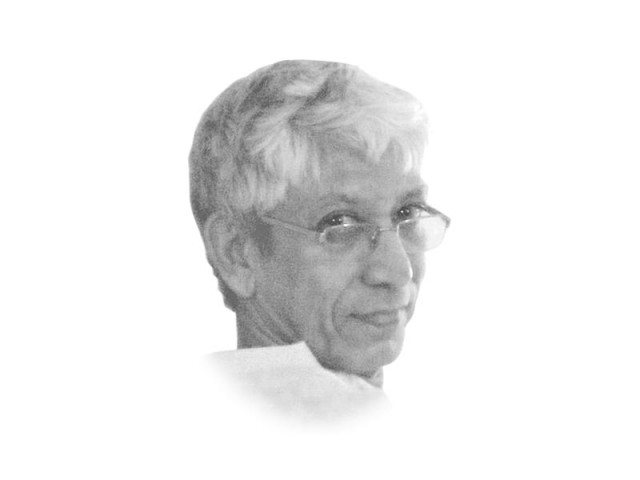The making of the modern maulvi — XIII
Shurafa castes only began to shift from their traditional professions when society changed under the Colonial system.

The making of the modern maulvi — XIII
When this matter of discriminating between upper- and lower-caste converts was put as a question to Maulana Ashraf Ali Thanvi, inquiring whether it might be a discouraging factor for people of lower castes to enter the fold of Islam, he, in his characteristic detached style, replied that the questioner should consider how a high-caste (for example an honorable Rajput) would feel if he was told that upon entering Islam he would be treated equally with a converted Bhangi or Chamar. Would he not be discouraged?
The Shurafa were distinguished on another count as well: their occupations required them either to use a sword or a pen; in other words, they either monopolised physical power or knowledge and never used their hands for any productive work. All the menial jobs — tilling the land, fetching water, weaving clothes, making houses, tools, utensils, shoes, ornaments etc. and cleaning all kinds of dirt and mess — were forced on the local converts (and, of course, unconverted lower-caste people) who were supposed to exist only to serve the Shurafa castes. Indeed, they were collectively called khidmati qaumain (literally meaning ‘serving castes’ and an Urdu equivalent of the Punjabi kammi). Needless to say, they constituted a huge majority of the population. In the South Asian Muslim caste system, they were further divided into two large groups, Ajlaaf and Arzaal, which roughly corresponded to the middle and lower (untouchable) caste groups under the Hindu social system.
Whatever else these Ajlaaf and Arzaal had to go through throughout their lives, what concerns us here is that there was no question of their leaving their ancestral caste occupation or pursuing any branch of knowledge under the traditional local system. These things began happening for some of them only when society started to change under the exigencies of the colonial system, as we have outlined before. Being allowed to enter new professions, access knowledge of different levels and kinds and see a definite improvement in their standard of living constituted the beginning of a narrative of progress through education, work and urbanisation. The effect of the same process of social change on the Shurafa was almost in the opposite direction. They had typically inherited a piece of land, conquered and occupied by a sword-wielding ancestor or granted to him by a sword-wielding ruler. The spectre of getting educated and working to earn their living was nothing less than a great calamity for most of them.
It was for these Shurafa of North India that two institutions — the MAO College at Aligarh and the Darul Uloom at Deoband — were established. Initially, they (and other, less publicised educational initiatives) were meant to exclusively serve the Muslim landed class made up of the upper castes. Sir Syed Ahmed Khan is on record at numerous places in the huge volume of his writings and speeches to this effect. Similarly, the initial administrators of the Deoband madrassa made it abundantly clear that the calamity that had befallen the Indian Muslims was that the four Ashraaf castes who were entrusted with the profession of knowledge had abandoned it and that the madrassa had been established with the express purpose of persuading them to acquire religious learning not merely for glory but for their livelihood as well. It is another matter that their competing institution, Aligarh, which promised better and more prestigious means of livelihood to their graduates, managed to attract the bulk of the North Indian Muslims of Ashraaf castes.
The pace of social change, to which the promoters of both these kinds of institutions seemed unmindful, at least during the initial decades, gradually worked to force them in the first quarter of the 20th century to open their gates to some of the lower-caste Muslims as well. However, the initial belief of religious knowledge being the exclusive monopoly of Shurafa not only survived among the prominent Deobandi maulvis but, as a reaction to the educational and economic progress made by some of the lower-caste biradaris, grew more sharpened and hostile. In 1935, Mufti Muhammad Shafi Usmani (who, after Partition, moved to this side of the border and started calling himself Mufti-e-Azam Pakistan) wrote a risala on the matter of bloodlines, titled Nihayaat-ul Arab fi Ghayaat-un Nasab, to condemn the upcoming Ansari and Qureshi biradaris in his home town Saharanpur. He wrote that the principal of equality in Islam was being misinterpreted in that some people wished to do away with the tafaazul-e-ansaab (privilege based on one’s lineage) in the affairs of the world, although it is supported by the clear pronouncements of the sharia. The mufti had invited a prominent trader of his town to write a preface of the booklet, in which it was declared that the cause in the modern times for natural and other calamities, such as earthquakes, famines etc., was that religious knowledge had reached the lower-caste Muslims who could not possibly deserve or value this access to ilm-e-deen.
Published in The Express Tribune, November 12th, 2011.














COMMENTS
Comments are moderated and generally will be posted if they are on-topic and not abusive.
For more information, please see our Comments FAQ